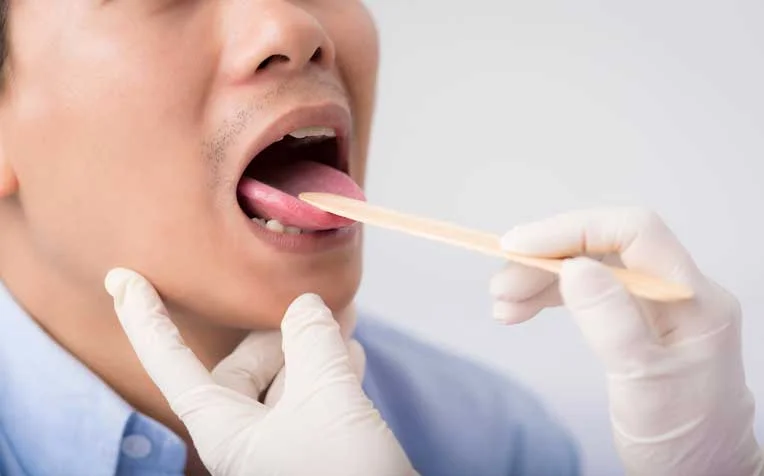Why Men Over 40 Are More Prone to Tongue Cancer; Here’s Everything To Know About Warning Signs and Prevention

Why Men Over 40 Are More Prone to Tongue Cancer; Here’s Everything To Know About Warning Signs and Prevention
Tongue cancer is one of the lesser-known forms of cancer, but it can have a serious impact on health if not detected early. Experts say it happens when cells on the tongue begin to grow and divide uncontrollably. Though rare overall, it is reportedly among the most common cancers of the head and neck and is seen more often in men over 40.
What is Tongue Cancer?
The tongue extends from the hyoid bone near the chin to the floor of the mouth. When cancer affects the front, visible part of the tongue, it is called oral tongue cancer. If it develops on the back portion, which cannot be seen, it is called the base of tongue cancer or oropharyngeal cancer.
The most common type of tongue cancer is squamous cell carcinoma (SCC), which begins in the squamous cells lining the surface of the tongue.
How Common is Tongue Cancer?
Tongue cancer makes up less than 1% of new cancer diagnoses in the United States, but it is still one of the leading cancers of the mouth and throat. It is found twice as often in men as in women and occurs mostly in people over 40.
Symptoms of Tongue Cancer
The signs of tongue cancer are not always clear in the early stages. Visible symptoms may include red or white patches on the tongue, a lump that bleeds easily, or an ulcer that does not heal. Other symptoms can include a persistent sore throat, neck or ear pain, numbness in the tongue, burning sensations, trouble chewing or swallowing, hoarseness, jaw swelling, or loose teeth.

Causes and Risk Factors
Experts believe tongue cancer begins when abnormal cells grow out of control, often due to DNA changes. The biggest risk factors are heavy smoking and high alcohol consumption, especially when both habits are combined. Other risk factors include HPV infection, chewing tobacco, betel nut use, a family history of oral cancers, or a past cancer diagnosis.
Diagnosis
Tongue cancer is often detected during routine dental exams or health checkups. To confirm it, doctors may use lights, scopes, or imaging tests such as CT, MRI, or PET scans. A biopsy, where a small tissue sample is taken for testing, is the most common method to diagnose it.
Treatment Options
Treatment depends on the size and spread of the tumor. Surgery to remove part or all of the tongue (glossectomy) is common, sometimes combined with lymph node removal. Radiation therapy may be used before or after surgery, and in some cases, chemotherapy, immunotherapy, or targeted therapy is also recommended.
Tongue cancer cannot be completely prevented, but the risk can be reduced. Avoiding tobacco and alcohol are the most important steps. Experts also suggest HPV vaccination, as the virus is linked to many cases. Eating fresh fruits, vegetables, and whole grains, along with regular dental checkups, can also lower the risk.












